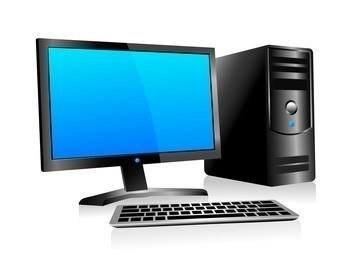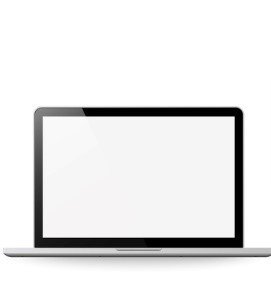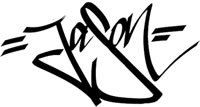If you're thinking about buying a computer you may be overwhelmed with the number of brands, types, and specs on offer and wondering how much you need to spend and what to look for.
Keep reading for all the answers.
1. Initial questions to start thinking about
Deciding what computer to buy is complex if you don't know what you are looking for.
Many store salespeople don't have your best interests at heart. They point you towards a computer that earns them the most commission or helps clear out older obsolete stock.
Here are some things to start thinking about.
2. Desktop or laptop or tablet
Desktop computers have lost their popularity over the years in favour of laptops and tablets. A desktop computer comprises of a tower, maybe half a metre high and 20cm wide, plus a separate keyboard, mouse and monitor (screen). They are always plugged into mains power.



Laptops have the advantage of portability. They are becoming thinner and lighter.
In the past, the main reason to buy a desktop computer was for extra performance and a bigger screen. These days, most laptops have adequate performance (especially for a beginner user) and you can plug a screen of any size into your laptop.
Laptops have increasingly better battery life, some now lasting 14 or more hours. They can also be plugged in. You can plug in a monitor with a bigger screen and use either the big screen, the laptop screen or both.
Tablets have the best battery life but have no keyboard (unless you plug one in). That’s sounds fine until you’re massaging your fingers after tapping a glass screen for 2 hours.
Some devices like the Microsoft Surface Pro have detachable keyboards so you can use it as a laptop or a tablet. They are hybrid.
Desktop and laptop hardware can be upgraded whereas tablets cannot.
3. Screen size
Screen size may be important to you.
You may choose a smaller screen which means less weight, good for travelling. Or you may choose a bigger screen so you can see more.
You can plug in a monitor of any size into a desktop or laptop computer. Many people opt for 27” screens (that’s the diagonal measurement from the bottom-left corner to the top-right CORNER.
There are also 4k and ultra-wide curved screens which allow you to view multiple A4 pages side by side, at full size.
4. Brand
There are many brands, including (in alphabetical order) Acer, Asus, Chromebook, Dell, Hewlett Packard (HP), Lenovo (IBM), Iball, Microsoft, MSI, Razer, Samsung and Toshiba
Each brand has several models from cheap entry-level machines to top-end, high-spec machines.
For Windows PCs, the Microsoft Surface is the best of the best, but also the most expensive.
Everyone has their own preferences and opinions on brands (and nobody agrees!). The good news is that you should be okay with any brand.
5. What to look for in a computer
A few years ago, the expected life span of a laptop was 2-3 years. These days you should be good for 5-10 years before you want to upgrade for better features or technology.
It mostly comes down to build quality.
Are the USB ports and headphone/audio jacks accessible (side, back, front)?
Shops tend to throw lots of specs at you and the shop assistants are more interested in making a sale than giving you’re the right computer.
6. The specs that matter (in order of priority)
#1 Storage type and size
Your computer needs storage. It's where all your programs, tools, pictures, videos, documents, spreadsheets and every other type of file are kept.
The biggest determining factor for the speed of your computer is the type of storage you choose.
There are 2 types - Solid State Drive (SSD) and Hard Disk Drive (HDD).
I have taken several old laptops and swapped the original HDD for an SSD and each computer immediately ran about 10 times faster.
If you had to spend money on one thing, SSD is it.
Think of the difference between HDD and SSD like playing music on an old vinyl record player vs instant streaming.
Hard Disk Drives (HDD) are old technology. They have a spinning disk and a stylus (called a read/write head). In the same way that older folk used to find their favourite track and carefully place the needle onto a particular place on the record, the HDD has to find the right place on the disk to write or read the data.
In comparison, SSD is lightning fast. There are no moving parts so things are quicker and quieter. Your computer doesn't overheat and your laptop battery lasts longer.
The downside - SSD is more expensive.
If budget is your most important factor, choose HDD to keep your costs down.
If you have the budget, choose SSD over HDD.
Storage (for both HDD and SSD) comes in a variety of sizes - 128Gb, 256Gb, 512Gb, 1Tb, 2Tb, 4Tb and larger.
(Gb = Gigabyte, Tb = Terabyte, 1Tb is roughly equal to 1,000 Gb)
I'll give you 2 examples to help you get your head around how much storage you might need.
You may be tempted to go for a 1Tb or 2Tb HDD because the storage capacity is large. In my opinion, that's a mistake. It's better to go for a 128Gb or 256Gb SSD. The speed trumps the size.
If you are only ever storing a few pictures and making a few documents you will never run into an issue.
If you utilize the cloud, storage will never be a problem anyway.
And if you need it, you can buy a 64Gb USB stick that you plug into your laptop for extra storage for less than 20 bucks.
#2 RAM (Computer memory)
Imagine if you had to sort out hundreds of paper documents.
Would it be easier on a poky little coffee table or a spacious board room table?
Of course, you would use the larger table so you can spread things out and get things done quicker.
It's the same on a computer.
The more RAM you have the better.
Your computer is processing thousands of tasks every second. Having more RAM is like having a bigger table. It just makes the job easier and quicker.
RAM figures on a spec sheet are normally 4Gb, 8Gb or 16Gb. You might see higher, but not often.
4Gb is the bare minimum. It's better to go for 8Gb or 16Gb RAM if you can.
You can always add more RAM later if you know what you are doing, but for a simple life, get the most you can afford when you buy the computer.
#3 Processor
The processor (a.k.a. chip) is like the engine of the computer.
The bigger the engine, the faster it runs.
Look for I9 (absolute best but pricey), I7 (great), I5 (next best) or I3 (bare minimum).
If you see Pentium or Celeron, walk the other way.
Sometimes you’ll see a phrase like 7th generation I5. Don’t confuse ‘7th’ with I7. It's still an I5!
#4 Cores
Think of cores like cylinders in a car engine. The more you have, the better it performs.
It’s like having multiple people working on a job instead of 1 person. The job gets done faster.
In descending order of power, you can currently get 8-core, 6-core, quad-core (4) and dual-core (2).
Quad-core or higher will see you through for a good number of years.
As technology surges forward, 16-core and 32-core chips will enter the market and eventually become the norm.
#5 Webcam
Most laptops have a built-in webcam so you can Skype, Zoom or Hangout. Make sure it has one if you need one.
You can also purchase external webcams that plug straight into the laptop. this gives you more freedom in where to place it. For example, you could place the camera on top of a larger monitor, a bookshelf or a coffee table.
#6 Optical Drive
This is a fancy name for a built-in DVD/CD drive.
When was the last time you used a CD or DVD? Exactly. You don’t really need a player.
If you do need to play a CD or DVD, you can buy a player that plugs into a USB port for a few bucks.
7. Summary / recommendations
8. What next?
I hope you found plenty of value in this post. I'd love to hear your biggest takeaway in the comments below together with any questions you may have.
Have a fantastic day.


About the author
Jason Morrell
Jason Morrell is a professional trainer, consultant and course creator who lives on the glorious Gold Coast in Queensland, Australia.
He helps people of all levels unleash and leverage the power contained within Microsoft Office by delivering training, troubleshooting services and taking on client projects. He loves to simplify tricky concepts and provide helpful, proven, actionable advice that can be implemented for quick results.
Purely for amusement he sometimes talks about himself in the third person.
SHARE


This is so helpful. I love organized information and will use it to purchase a new computer. Thank you!!
I’m glad you found it useful April. There’s a lot of confusing information out there.
Your checklist at the end of the is going to be valuable for me when I go to buy a computer.
What about docking stations for laptops
I’m glad you found the checklist useful.
Docking stations are not generally sold at computer stores. I guess this is because they are mostly used in a business setting where people need the portability of a laptop while they are out of the office and the convenience of a dock when in the office.
There is no standard dock, even for the same brand of computer. If you want to go down this road, I would make a shortlist of the laptops you are interested in, then do some Google research for a compatible dock and order it online.
Docks used to be big and clunky. These days they are much smaller. The dock I have for my Surface is a small cube that sits out of sight and connects to my big 4K screen and a wired internet and has a couple of USB ports for the mouse and keyboard etc. There is one cable from the dock that plugs into my Surface tablet. For me, it is connected 95% of the time, but when I travel I simply remove the dock cable.
I hope that helps. Do some research. Find out what your options are, then go from there. All the best.
I’ll be buying my first computer soon and this website was SUPER helpful! Now I can understand what I’m getting into with specs and such. Thanks!
Great to hear Jason. I hope you find a computer you’ll love and will serve you well for a few years to come.